
Experts unravel mystery of the Pokémon episode that hospitalised hundreds of kids
Pokémon’s TV series has been delighting animé lovers for more than 26 years, and yet, there’s one episode that even the most diehard of fans may well have missed. The installment, titled Dennō Senshi Porygon (which roughly translates as "Computer Warrior Porygon”) aired in Japan on December 16, 1997. And, after that single, fateful outing, it was never to grace television screens again. The reason for the ban? Reports of a strange health outbreak among children which was linked to a specific scene. The episode follows Ash Ketchum, Pikachu and their pals as they investigate a faulty Poké Ball transfer machine by getting inside it. Once there, the team come under attack, but are saved when Pikachu unleashes one of his high-octane electric outbursts – represented by a barrage of red and blue strobe lights. And that’s where the trouble began. According to scientific paranormal investigator Benjamin Radford and sociologist Robert Bartholomew, who dedicated a study to the event: "At 6:51 PM, the flashing lights of Pikachu's 'attack' appeared on television screens. “By 7:30 PM, according to Japan's Fire-Defense Agency, 618 children had been taken to hospitals complaining of various symptoms." These symptoms included convulsions, nausea and vomiting, with news of the “illness” spreading rapidly throughout the country. Inevitably, it made headlines, with several news broadcasters replaying the offending clip, “whereupon even more children fell ill and sought medical attention,” Radford and Bartholomew wrote. The following day, TV Tokyo issued an apology, suspended the show, and announced an investigation into the cause of the seizures. Meanwhile, video retailers pulled the series from their shelves, and even the then-prime minister Ryuaro Hashimoto expressed concern at the use of rays and lasers in the popular cartoon. Within two days, the number of children reported to have been affected by the flashing sequence increased to around 12,700. And yet, after four months of investigation – with input from health experts and Japanese government officials – no obvious cause could be found for the outbreak and Pokémon returned to the airwaves. Because, although the bright flashes were assumed to be the cause of the health panic, such visual techniques had been used in numerous other animé episodes before, with no reports of any problems. So what was going on here? Well, a tiny fraction of the children who reported being affected were diagnosed with photosensitive epilepsy, with experts concluding that the rapid colour changes during the scene caused them to suffer seizures. However, the bulk of “patients” reported symptoms that had no identifiable “organic” cause and were, instead, consistent with a very different type of condition… Mass hysteria. Radford and Bartholomew attribute this “epidemic hysteria”, in large part, to the mass media, which they say fuelled panic and misinformation. "Many of the children's symptoms had no identifiable organic basis; other than the verified cases of seizures, the symptoms reported were minor and short-lived; the victims were nearly exclusively school children in early adolescence; and anxiety from dramatic media reports of the first wave of illness reports was evident,” they wrote. “Media reports and publicity fuel the hysteria as news of the affliction spreads, planting the idea or concern in the community while reinforcing and validating the veracity of the illness for the initial victims,” they continued. “According to news accounts of the time, the number of children said to be affected remained around 700 the evening of the Pokémon episode and the next day. “The next morning, the episode dominated the Japanese news. Japanese children who had not heard about their peers from the news or from their parents learned of it that morning when the seizures ‘were the talk of the schoolyards’,” they continued. “Once the children had a chance to hear panicky accounts of what had happened through the mass media, their friends and their schools, the number of children reported the next day to have been initially affected – 2 days earlier – increased by 12,000.” Radford and Bartholomew ended their paper by noting that this Pokémon drama offers a warning to us all. They pointed out that our continuing reliance on mass communications, especially TV and the internet, places us at risk of more and more hysteria outbreaks. “Technological innovations are occurring at unprecedented rates and have the potential to influence significant numbers of people beyond the typical number in traditional mass hysteria episodes,” they stressed. “Epidemic hysterias that in earlier periods were self-limited by geography now have free and wide access to the globe in seconds.” Concluding on an ominous note, they added: “The Pokémon illness symptoms are without precedence, given the large numbers affected, and may be a harbinger of future technological hysterias that have the capacity to affect unprecedented numbers of people at a phenomenal speed.” Sign up for our free Indy100 weekly newsletter Have your say in our news democracy. Click the upvote icon at the top of the page to help raise this article through the indy100 rankings.
2023-10-18 17:18
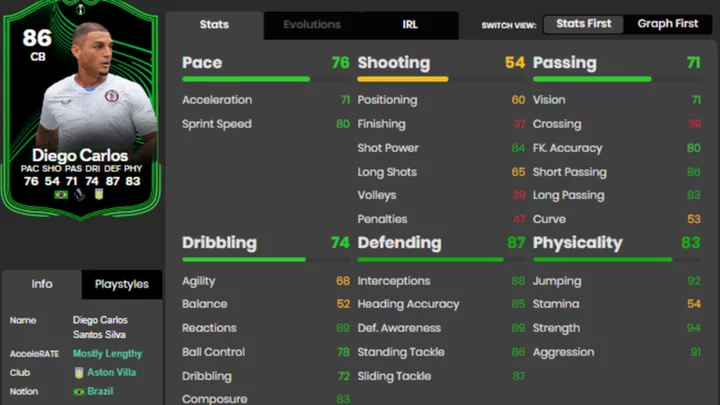
Diego Carlos FC 24: How to Complete the Road to the Knockouts SBC
Diego Carlos FC 24 Road to the Knockouts SBC is now live requiring three segments at over 100,000 coins. Here's how to complete the SBC and if you should.
2023-10-08 01:47
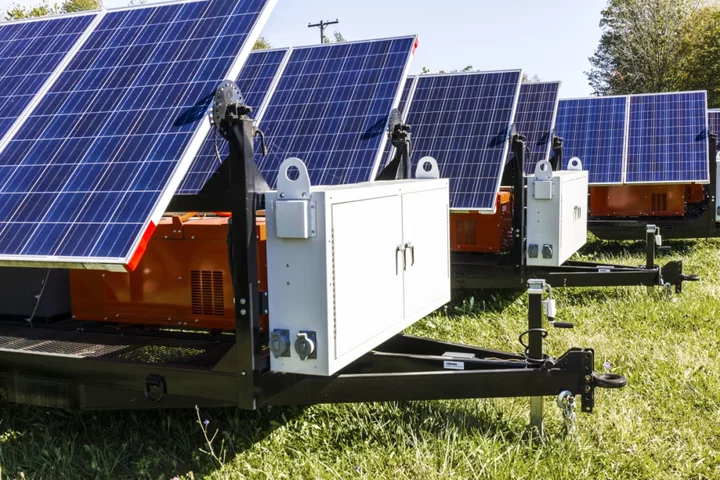
These Stocks Are Moving the Most Today: SolarEdge, Enphase, Knight-Swift, Intuitive Surgical, HPE, American Express, and More
Solar stocks tumble after SolarEdge warns about demand in Europe, Knight-Swift Transportation's revenue tops forecasts, Intuitive Surgical's revenue misses, and American Express is scheduled to report earnings Friday.
2023-10-20 16:52
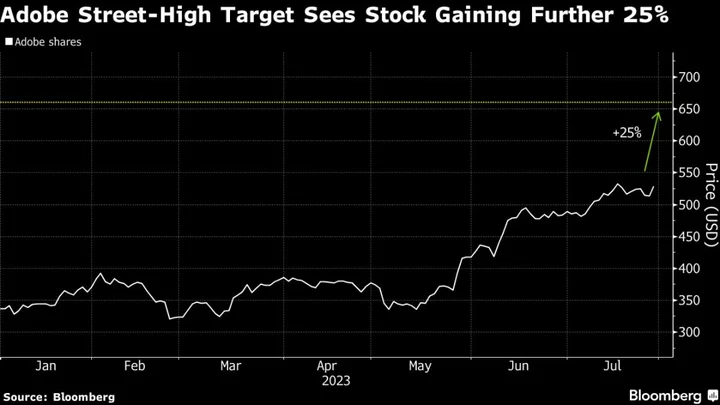
Adobe Could Add Another 25% to Its Blistering Rally, Morgan Stanley Says
Adobe Inc.’s blistering rally has further to go, according to Morgan Stanley analyst Keith Weiss, who sees the
2023-07-31 17:45

Crypto Stays Shaky After SEC Crackdown Led to Weekend Selloff
Cryptocurrencies fell Monday, though staying above their weekend lows, as last week’s regulatory crackdown by the US Securities
2023-06-12 13:28

This viral AI image of an 'explosion' near the Pentagon never happened
The dangers of artificial intelligence (AI) spreading harmful misinformation were made clear once again on Monday, when local fire service officials were forced to confirm there had not been an ‘explosion’ at the Pentagon in Virginia – despite an AI-generated image appearing to suggest there had been. The main image, shared by several fake accounts with blue tick ‘verification’, depicts black smoke billowing close to the Pentagon building, with another showing a distant photo of smoke next to the US defence department headquarters. Stating that the reports are unfounded, the Arlington Fire and Emergency Medical Services Twitter account wrote: “[The Pentagon Force Protection Agency] and the ACFD [Arlington County Fire Department] are aware of a social media report circulating online about an explosion near the Pentagon. “There is NO explosion or incident taking place at or near the Pentagon reservation, and there is no immediate danger or hazards to the public.” Fortunately, while paid-for blue tick accounts have been promised greater promotion on Twitter, a search for ‘Pentagon’ on the social media network brings up a string of tweets from ‘unverified’ accounts debunking the AI image: Stocks reportedly tanked following the fake image, and it isn’t the first time that’s happened, either. The pharmaceutical company Eli Lilly saw a sudden drop last year when an imposter tweeted “insulin is free”. Sign up to our free Indy100 weekly newsletter And if tricksters aren’t targeting the Pentagon with AI-generated imagery, then they’re using the software to create pictures of the Pope in a puffer jacket and former US President Donald Trump being arrested. In fact, it was only last month that Alexandria Ocasio-Cortez, the New York representative, warned of “major potential harm” at the hands of fake AI images. “Jokes aside, this is setting the stage for major potential harm when a natural disaster hits and no one knows what agencies, reporters, or outlets are real. “Not long ago we had major flash floods. We had to mobilize trusted info fast to save lives. Today just made that harder,” she said. It seems we’re there already… Have your say in our news democracy. Click the upvote icon at the top of the page to help raise this article through the indy100 rankings.
2023-05-23 03:29
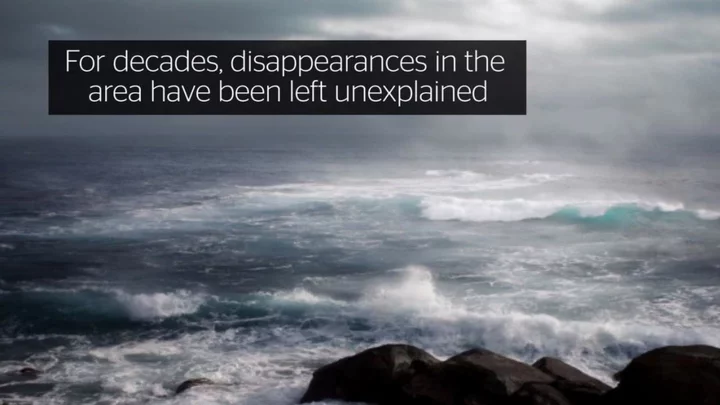
Expert uses science to explain what causes so many Bermuda Triangle disappearances
One expert believes he’s “solved” the mystery of the Bermuda Triangle. Channel 5’s documentary, Secrets of the Bermuda Triangle, featured an interview with mineral prospector Nick Hutchings. Hutchings said that geology could explain the disappearances of planes and boats. According to the National Oceanic and Atmospheric Administration (NOAA), the Bermuda Triangle is in the western part of the North Atlantic Ocean and “has captured the human imagination with unexplained disappearances of ships, planes, and people.” The region has also been referred to as ‘The Devil’s Triangle’, with reports of disappearances in the area date as far back as the middle of the 19th century. Reports of distress signals or wreckages resulted in crews and passengers never being heard from again. Many have come up with conspiracy theories in an attempt to explain the bizarre occurrences that happen in and around the Bermuda Triangle. Some believe the lost city of Atlantis is responsible, others think it has something to do with rogue waves, and few go as far to suggest it is a portal to another space and time. But Hutchings has a different theory. This one involves rocks. “Bermuda’s basically a sea mountain - it’s an underwater volcano. 30 million years ago, it was sticking up above sea level,” Hutchings explained. “It has now eroded away and we’re left with the top of a volcano. We have a few core samples, which have magnetite in them. It’s the most magnetic naturally occurring material on Earth.” Using only a small piece of rock and a compass, Hutchings conducted an experiment during the documentary to demonstrate what this meant for ships sailing through the area. When the compass was passed over the rock its needle went berserk, ultimately resulting in the navigational device being completely useless. “You can just imagine the ancient mariners sailing past Bermuda,” he explained. “It would be very disconcerting.” In other words - people travelling through simply got lost. Whilst the Bermuda Triangle may seem to be this mysterious location, scientist at Sydney University, Karl Kruszelnicki, claims the percentage of missing planes and boats is similar to any other high-traffic part of the ocean. Sign up to our free Indy100 weekly newsletter Have your say in our news democracy. Click the upvote icon at the top of the page to help raise this article through the indy100 rankings.
2023-08-29 00:29
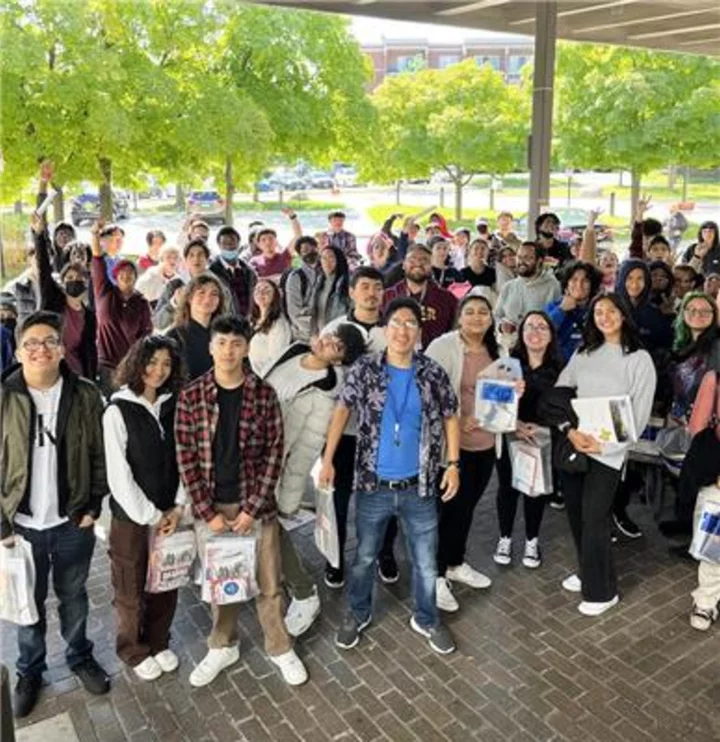
DeVry University Advantage Academy Ranks in Top 10 of Chicago Parent’s Best Public High Schools List
NAPERVILLE, Ill.--(BUSINESS WIRE)--Sep 20, 2023--
2023-09-20 22:17

Twitter users run into service issues after Elon Musk imposes daily limits on reading tweets
Thousands of people logged complaints about problems accessing Twitter on Saturday after owner Elon Musk limited most users to viewing 600 tweets a day — restrictions he described as an attempt to prevent unauthorized scraping of potentially valuable data from the site
2023-07-02 04:18

Manchin Slams Biden’s EV Tax Credit Rules as Soft on China
New rules from the Biden administration to limit a lucrative consumer tax credit for electric vehicles that contain
2023-12-02 02:47

Jury finds Berkshire's PacifiCorp unit liable in 2020 Oregon wildfires
By Jonathan Stempel An Oregon jury on Monday found the utility PacifiCorp, a unit of Warren Buffett's Berkshire
2023-06-13 03:49

How to try the new Google Search AI chatbot features
At Wednesday's Google I/O, which may have set a record for mentions of AI in
2023-05-12 22:51
You Might Like...

Thales Confirms Its Key Role to Provide Cybersecurity for Galileo Second Generation to Meet Tomorrow's Threats

Some players rendered it 'unplayable': Payday 3 developer 'working tirelessly' to fix launch failures

Automated Truck by IVECO and Plus Now on Public Roads in Germany
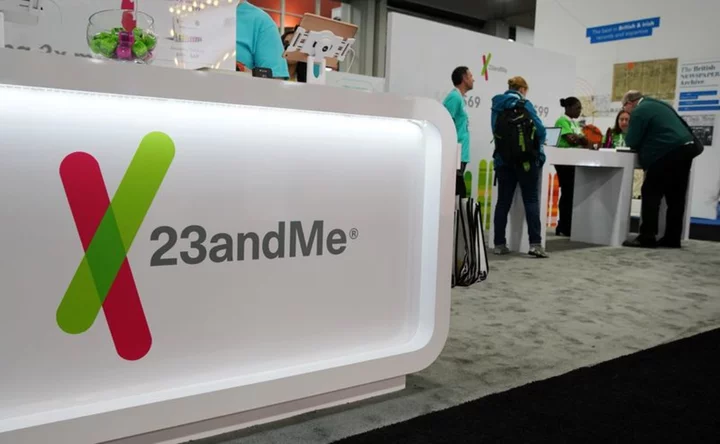
Hackers advertise sale of 23andMe data on leaked data forum
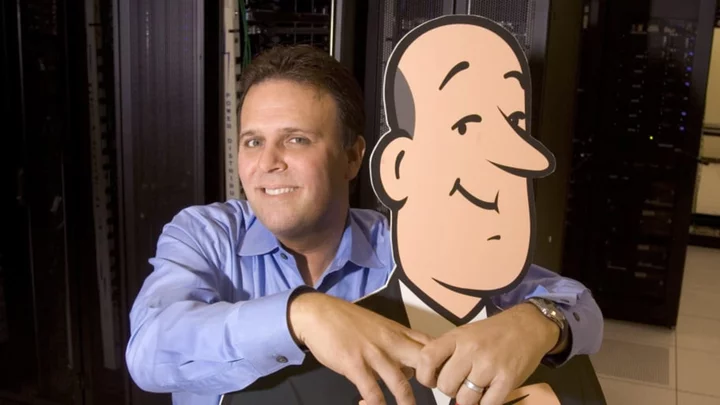
Why Everyone Stopped Asking Jeeves
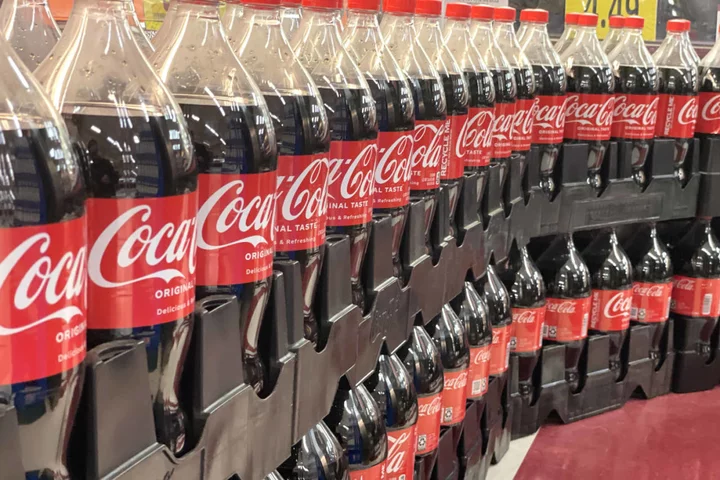
Bond Yields May Have Peaked. Consider These Stocks.
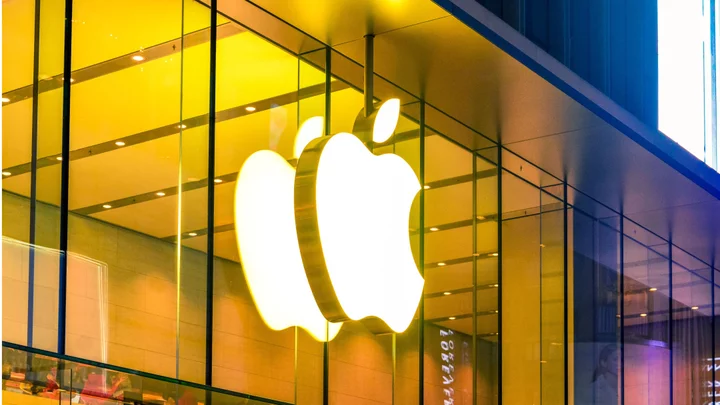
Apple Will Ship In-Store Sales To Your House, Starting Next Month

Get a lifetime of AI-powered writing assistance for $200
